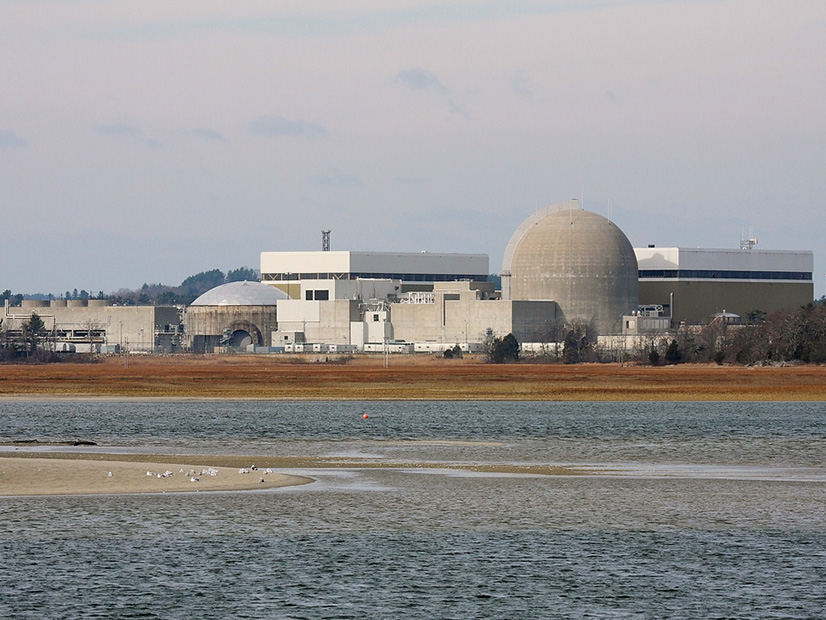
The D.C. Circuit Court of Appeals on Friday took a scalpel to ISO-NE’s Inventoried Energy Program, finding that it would unfairly incent resources for storing energy in a way they already do (Belmont Municipal Light Department v. FERC, 19-1224).
Approved by FERC in 2020 over the objections of then-Commissioner Richard Glick, the IEP is set to be in place for the 2023-2025 winter seasons to compensate resources for the inventoried energy they hold on winter days that hit a certain low-temperature threshold.
But after the court’s ruling, it will be significantly blunted. The three-judge panel found that the program’s inclusion of coal, hydro, biomass and nuclear generators as eligible for compensation is arbitrary and capricious because they already maintain inventoried energy and would not change their behavior in response to the approximately $40 million in new payments that would be sent their way.
“In reviewing FERC’s June 2020 order, we conclude that FERC approved IEP without adequately considering legitimate objections from complainants who pointed out that it would result in windfall payments to nuclear, coal, biomass and hydroelectric resources,” wrote Judge Robert Wilkins in the court’s opinion.
The court left the rest of the IEP in place, allowing the RTO to compensate oil, natural gas and refuse generators.
The association representing generators in New England said the ruling is unfair and that the court “cherry-picked its own design, carving the market even further into haves and have nots.”
“At a moment of a national refocus on electric reliability, it flies in the face of logic to deliberately choose to not pay for an identified reliability service for some, but yes to others,” said Dan Dolan, president of the New England Power Generators Association. “With electric reliability in New England’s winters an ongoing focus, I simply hope this is not a harbinger of the future of the electricity market.”
ISO-NE spokesperson Matt Kakley said the grid operator is reviewing the decision.
In addition to throwing doubt on the efficacy of the program starting in 2023/24, the ruling could also affect the grid operators’ plans going forward for this winter. ISO-NE has been considering proposing a new version of the IEP as well as possibly bringing back its Winter Reliability Program. (See ISO-NE Weighs Reviving Reliability Programs for this Winter)
The court’s ruling — and the position of Glick, who in 2020 called the program “an ill-conceived giveaway” — seem to lower the chances that FERC would approve the IEP or a similar program for the winter of 2022/23.
The petitioners challenging the program included New Hampshire and Massachusetts, municipally-owned electric utilities and environmental groups including the Sierra Club and the Union of Concerned Scientists. Some had asked for the program to be eliminated altogether, but the court rejected that, agreeing with FERC and ISO-NE that the overall program is not unreasonable.


